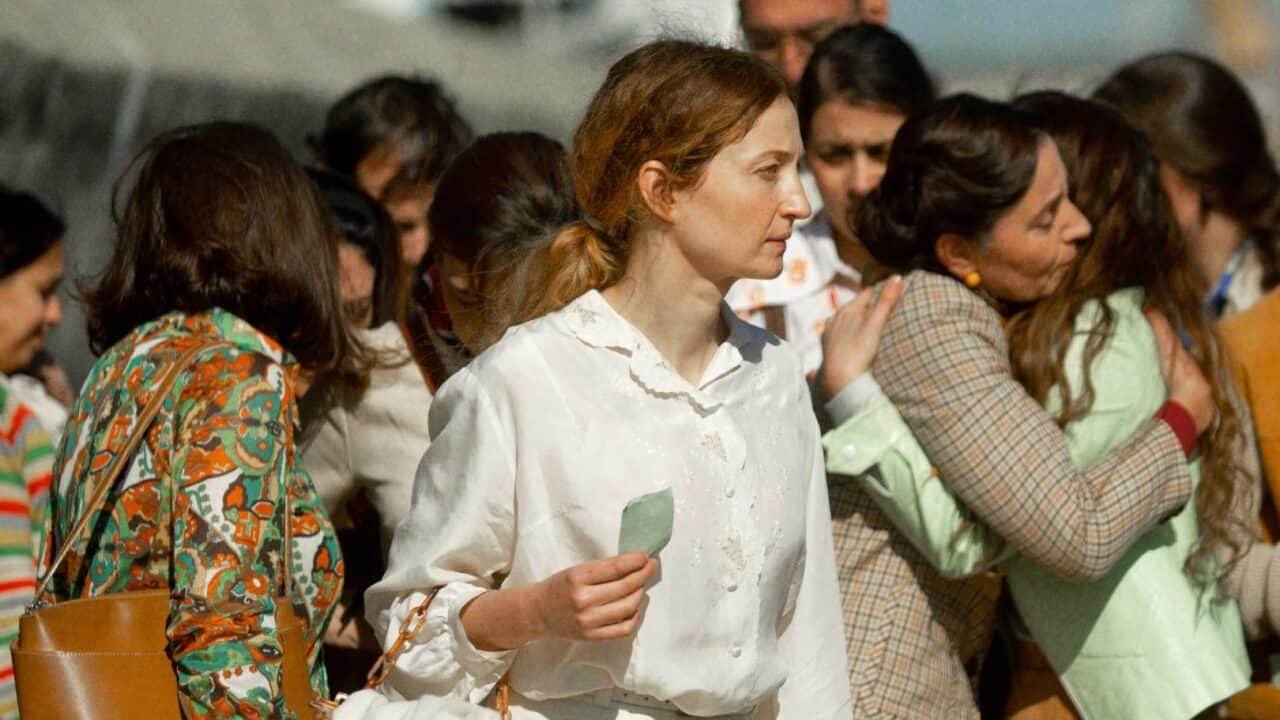The main female characters in Pedro Almodóvar’s 2002 film Talk To Her are both in a coma, so how is it that viewers gradually feel as if they know these women so thoroughly? The answer is Almodóvar’s singular, magical imagination and his genuine adoration for women.
Through the aesthetic, the narrative of the characters, the considered choice of angles and timing, he provides an intimate and dynamic portrait of women in this multi-award-winning film. Even his male characters are ultimately the creation of women, the lovers of women, the carers for women. Almodóvar’s reverence for women does not ignore their nuances, their masculine and feminine traits, their gentleness and their ferocity. Rather, all these qualities are elevated.
I recall watching Talk To Her years ago and thinking it was astonishing how a male director could so delicately, movingly get inside the head of his women characters.
Almodóvar is clever in his references, but it isn’t necessary to identify the artists or works he’s using to have an emotional connection to the characters and the story. A performance by German dancer and choreographer Pina Bausch, in which Marco (Darío Grandinetti) and Benigno (Javier Cámara) first notice each other, was of course layered with meaning. Bausch’s work – sometimes frenzied, sometimes transcendent and almost ugly in moments – was a response to, and exploration of, trauma and male/female disconnection. ‘Café Müller’, particularly, involves dancers tumbling and crashing into chairs and tables, lost and blind.
Marco’s blindness is his own ego and consuming love for Lydia (Rosario Flores), a famous matador. Lydia never seems equally as in love with him, constantly putting him through trials and then – hours before she is gored by a bull and rendered comatose – she warns Marco she has something to tell him later. Viewers, like me, might well suspect she is breaking up with him.
Whatever Marco believes, truly, he seems to convince himself it is not the end. He installs himself loyally at her bedside and though the idea is haunting, his relationship with Lydia is at its most peaceful when there can be no discussions, no arguments, no facial expressions to read, and no external world to interfere with their love. It is, in the most gothic of ways, a better situation for Marco than if Lydia had remained conscious and able to leave him. Benigno is in a similar situation as far as being a self-designated carer for comatose dancer, Alicia (Leonor Watling). Though she does not know him, nor he her, he spends hours regaling her with stories and gifts. This is a much more malevolent situation – as naively kind as Benigno seems, it becomes increasingly clear that he was obsessed with Alicia well before her coma and has taken advantage of the situation to invent a relationship between them. He, like Marco, is one of Bausch’s traumatised, stumbling, awkward dancers seeking blindly for a romantic connection where there is only darkness and the echo of his own voice.
Benigno is in a similar situation as far as being a self-designated carer for comatose dancer, Alicia (Leonor Watling). Though she does not know him, nor he her, he spends hours regaling her with stories and gifts. This is a much more malevolent situation – as naively kind as Benigno seems, it becomes increasingly clear that he was obsessed with Alicia well before her coma and has taken advantage of the situation to invent a relationship between them. He, like Marco, is one of Bausch’s traumatised, stumbling, awkward dancers seeking blindly for a romantic connection where there is only darkness and the echo of his own voice.

Lydia (Rosario Flores) in ‘Talk To Her’ Source: SBS World Movies
As events unfold, and it becomes shockingly evident that one of the women has been physically violated while in a coma, viewers are forced to assess their sympathies with each of the characters. We must confront that we had preconceived ideas of these silent, motionless women and we trusted these men to shape our ideas of who they are based on the one-sided dialogue carried on in hospital rooms and their memories.
It is the absence of the women’s voices that is so loud in this film. In the glimpses we see of Lydia and Alicia dancing, whether in the ballet studio or in front of a savage bull, they are depicted in bright colours, bathed in light, beautiful. They are doing what they are exceptional at doing, bringing joy and entertainment to people. We understand why these men want to possess them and love them, but ultimately, love – like a dance – must entail cooperation, shared language, a pact between both dancers to move with each other. Otherwise, they are stumbling and awkward, ugly in their movements, and bound to bring everything around them into a crashing state of disaster.
We understand why these men want to possess them and love them, but ultimately, love – like a dance – must entail cooperation, shared language, a pact between both dancers to move with each other. Otherwise, they are stumbling and awkward, ugly in their movements, and bound to bring everything around them into a crashing state of disaster.

Marco (Darío Grandinetti), Benigno (Javier Cámara) and Alicia (Leonor Watling) in ‘Talk To Her’ Source: SBS World Movies
Talk To Her, far from depicting silent and anonymous women, reveals them as more powerful than the men who speak at them and project their own fantasies and preconceptions upon them. They are human, not dolls. In that sense, Almodóvar’s own intention is to honour women’s dual lives – who we are and who the men in our lives imagine us to be, or want us to be. It is about women, and how much we reveal of ourselves without speaking. The title says everything. It is not Talk With Her, after all.
Talk To Her airs at 9.30pm, Tuesday 12 October on SBS World Movies. It is also now streaming at SBS On Demand.








